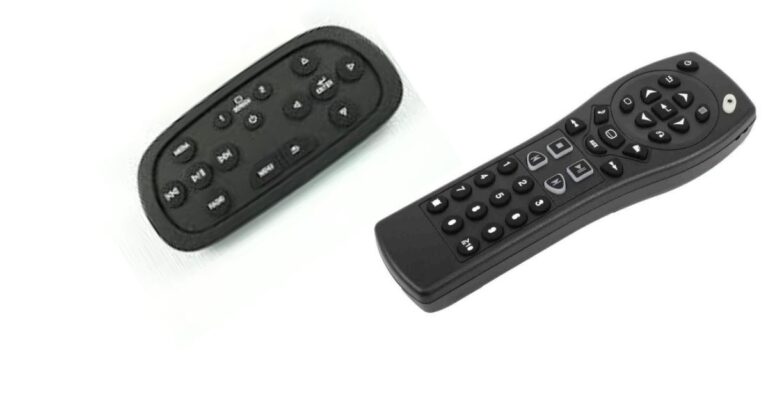The Role of Eco-Friendly Cloth Wristbands for Conscious Event Planning
In an era marked by growing environmental consciousness, the events industry is under increasing pressure to adopt sustainable practices. From reducing waste to minimizing carbon footprints, event planners are seeking innovative solutions to create eco-friendly experiences. One seemingly small yet impactful element that can contribute significantly to a sustainable event is the humble wristband.
In this article, we explore the role of eco-friendly cloth wristbands in transforming events into environmentally conscious celebrations.
Reducing Environmental Impact
Eco-friendly cloth wristbands cut the environmental impact of events by replacing plastic and synthetic wristbands, which contribute to pollution and decompose very slowly. In contrast, cloth wristbands made from organic cotton, bamboo, or recycled fibers are biodegradable and have a lower environmental footprint.
According to Cotton, 100% cotton is biodegradable in large-scale composting, breaking down 50-77% within about three months, enriching the soil by returning carbon. In contrast, polyester degrades very slowly in the same composting conditions. This difference underscores cotton’s environmental benefits over polyester.
Eco-friendly wristbands significantly reduce waste and resource consumption. These wristbands are often produced with less harmful chemicals and water, minimizing their environmental footprint. This shift preserves natural resources, meets growing consumer demand for sustainability, and enhances the event’s reputation and appeal.
Are there specific certifications or standards that eco-friendly wristbands should meet?
Eco-friendly wristbands should have certifications such as GOTS for organic fibers, OEKO-TEX for harmful substance testing, and FSC for sustainable materials. Such standards guarantee that wristband production respects both the environment and human welfare. Such certifications ensure their eco-friendly credentials.
Promoting Sustainable Event Practices
Eco-friendly cloth wristbands are effective in advancing sustainable event practices. Their use signals organizers’ dedication to minimizing environmental impact, which can encourage attendees and stakeholders to embrace similar eco-friendly behaviors. By adopting these alternatives, event planners can promote broader sustainability efforts.
Eco-friendly cloth wristbands, crafted from sustainable materials like organic cotton, bamboo, or recycled fibers, perfectly align with broader environmental goals. These wristbands can serve as a cornerstone in building a comprehensive eco-friendly event strategy. Besides, using eco-friendly wristbands can enhance an event’s reputation, drawing in environmentally-minded participants and potential sponsors.
Businesses must prioritize sustainability to thrive as consumers increasingly demand eco-friendly products and services. Deloitte reported that a significant portion of consumers, specifically one-third, favor brands committed to sustainability.
Consequently, the events industry, like other sectors, must embrace eco-friendly practices to attract and retain customers.
Enhancing Attendee Experience
Eco-friendly cloth wristbands offer superior comfort and durability compared to plastic alternatives. Crafted from soft, skin-friendly materials like organic cotton or bamboo, they provide a pleasant wearing experience. Also, their versatility allows for custom designs, enhancing event branding and creating a personalized feel.
Cloth wristbands double as cherished keepsakes, extending the event’s memory and enhancing attendee satisfaction. Their perceived premium quality contributes to a positive event image. Ultimately, this choice not only reflects environmental consciousness but also elevates the overall attendee experience.
According to Arnett Credentials, cloth wristbands are tear-resistant, durable, and comfortable, making them ideal for security management at multi-day events. They also serve as long-lasting souvenirs for attendees.
Can eco-friendly wristbands be designed to be more functional, like including QR codes or RFID?
Yes, eco-friendly wristbands can be designed to be more functional by incorporating QR codes or RFID technology. This allows for easy access to event information, seamless check-ins, and enhanced security, all while maintaining sustainability. These features add convenience and modernity to the eco-friendly wristbands.
Supporting Customization and Branding
Eco-friendly cloth wristbands are customizable marketing tools. They can be personalized with event branding, enhancing visual appeal and leaving a lasting impression. As souvenirs, they extend brand visibility beyond the event itself.
Also, incorporating eco-friendly wristbands into the event’s branding strategy can significantly boost its image and appeal to environmentally conscious audiences. A study reported by Sustainable Brands reveals a strong consumer preference for sustainability. Two-thirds of Americans are willing to pay a premium for eco-friendly products, with this figure reaching an impressive 80% among young adults.
This data underscores the growing demand for sustainable options across various industries. Offering customizable and branded eco-friendly cloth wristbands allows event organizers to create a memorable and sustainable brand experience. This approach not only resonates with attendees but also supports long-term brand recognition.
Cost-Effectiveness and Long-Term Benefits
Eco-friendly cloth wristbands offer long-term value for event planners. Despite a higher initial investment, eco-friendly cloth wristbands offer long-term cost-effectiveness due to their durability and reusability. This sustainable choice proves beneficial for both the environment and the event’s budget.
Cloth wristbands are durable enough to endure wear and tear, minimizing the need for frequent replacements at multi-day events. Their perceived premium quality can boost attendee satisfaction. This increased satisfaction often translates to higher event attendance and greater ticket sales.
Are there potential hidden costs or savings associated with using sustainable wristbands?
While eco-friendly wristbands have a higher initial cost, they offer long-term financial advantages. Reduced waste disposal fees and fewer replacements due to durability contribute to cost savings. Moreover, the positive environmental impact enhances brand reputation, attracting more attendees and potentially increasing revenue.
Navigating Challenges and Solutions
Adopting eco-friendly cloth wristbands in event planning comes with its set of challenges. One common concern is the higher upfront cost compared to traditional wristbands. However, these costs can be mitigated by bulk purchasing and choosing suppliers who offer discounts for large orders.
Another challenge is ensuring the wristbands meet specific event requirements, such as durability for multi-day events or security features like RFID.
Embracing Sustainable Solutions for a Greener Future
Eco-friendly cloth wristbands represent a significant step forward in conscious event planning. Embracing eco-friendly cloth wristbands not only aligns with growing environmental concerns but also sets a positive example for future events. As the event industry continues to evolve, adopting such sustainable practices will be crucial in shaping a greener, more responsible future.







